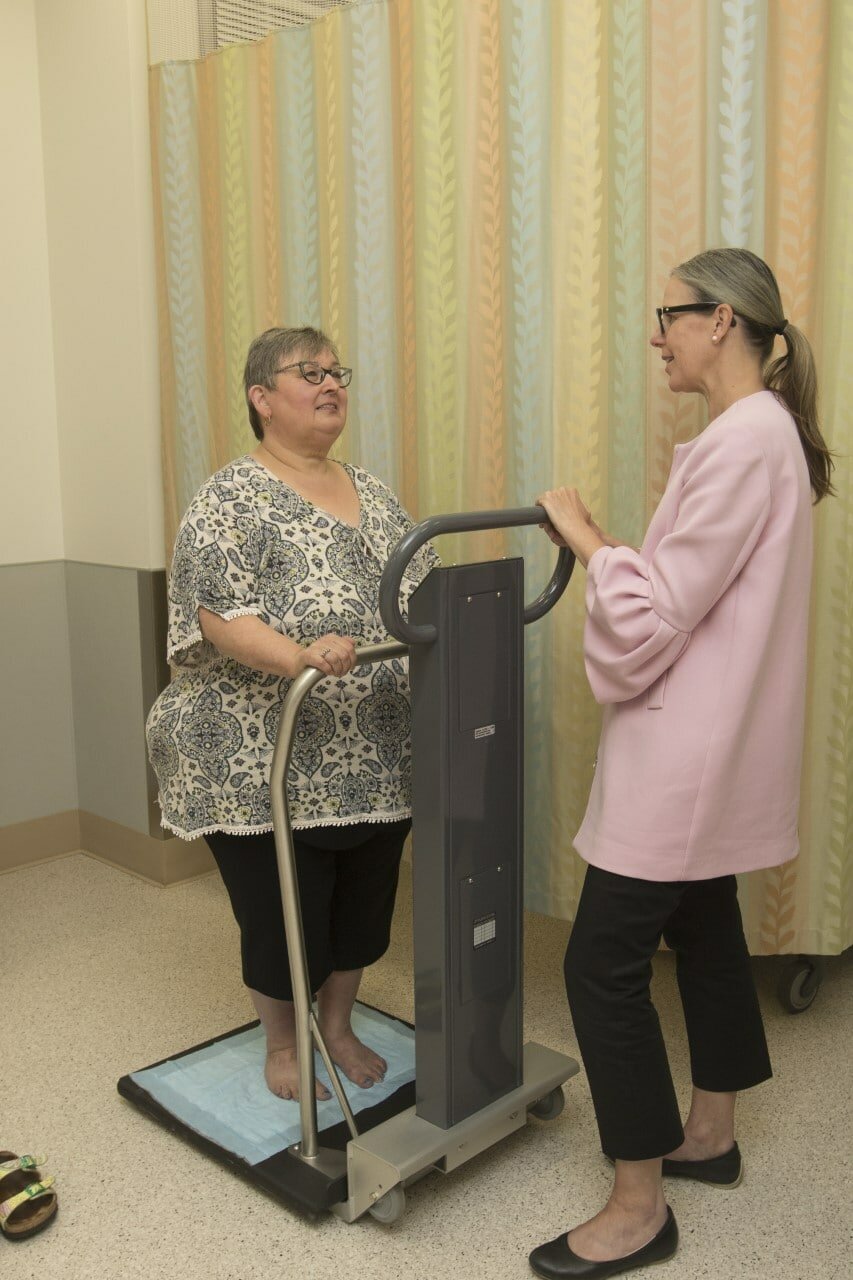COVID-15: Body Weight and COVID-19 Risk
Could COVID-15 be the next phenomenon of the COVID-19 pandemic? That is, like the “freshman 15” experienced by some first-year university students each year, unwanted weight gain caused by eating too much, drinking more alcohol, exercising less, sitting more and experiencing greater stress and anxiety. This constellation of behavioral and psychological factors put people at risk for weight gain. And concerningly, new research suggests that weight plays a role in our body’s ability to fight COVID-19. With rising rates of obesity a major public health concern in Canada, what can employers do?
A hallmark of the COVID-19 pandemic for many has been a return to home cooking. Flour was in short supply for many months, and Instagram posts may reveal why. Droves of millennials are showing off their sourdough starters and beautiful loaves of bread.
More time spent cooking from scratch has been a good thing – but with a greater hankering for more satisfying and indulgent foods, and fewer people to share them with, it may also lead to larger waistlines.
Comfort food has been a prolific stress reliever throughout the pandemic, but alcohol has also played a role. If months spent wrangling kids between zoom calls has led to an extra glass of wine each day, you’re not alone.
A quarter of Canadians aged 18-54 report drinking more since the COVID-19 pandemic began, according to a survey by the Canadian Centre on Substance Abuse and Addiction.
The main reasons for an increase in consumption were lack of a regular schedule (51%), boredom (49%) and stress (44%). In fact, the World Health Organization went as far as to recommend restricting alcohol and drug sales during the pandemic given the potential for an increase in use.
A glass of wine or beer can help to cope with daily stresses, but alcohol consumption also increases anxiety over the long term and weakens the immune system. A glass of wine has about 150 calories, so the extra calories from a few drinks add up quickly and don’t make you feel full.
There are also fewer options for burning off the extra calories. In many cities, gyms, parks, and community facilities remain closed. Moreover, jogging, cycling or social walks with a friend while maintaining social distancing can be tricky, particularly for those in densely populated downtown cores.
Many people aren’t doing a lot of the day-to-day activities that once contributed to their daily step count. Things like walking or biking to work, walking around the office to and from meetings, and even doing errands – as online shopping and fewer trips out of the house overall have become the norm.
What does all of this add up to? A great recipe for weight gain. This is particularly daunting because research tells us that losing weight is much more difficult than preventing weight gain in the first place. And the latest evidence suggests that excess body weight is associated with greater health risks associated with COVID-19.
Those living with obesity face greater complications from COVID-19
Obesity, a chronic condition that appears to put people at greater risk for Covid-19 complications, afflicts 26% of Canadian adults.
Research shows that COVID-19 patients with obesity are more likely to require hospital care and to be admitted into intensive care units than those without obesity. The risk appears greater for younger patients. The rate of obesity was higher in younger patients (<50 years) than older patients (>50yr), independent of other health conditions. This age trend was not present in people hospitalized for other conditions, suggesting that obesity poses a unique, increased risk for severe COVID-19 among those aged 50 years and younger.
It’s possible that excess body fat puts added stress on the body, makes breathing more difficult, or promotes a greater inflammatory response.
It’s also important to note that people living with obesity experience discrimination from health care professionals – causing them to receive lower quality medical care and to delay them from seeking medical help when needed. Both situations could contribute to an increased risk of experiencing COVID-19 complications.
In light of the pressing health risks of obesity identified during the COVID-19 pandemic, and UK Prime Minister Boris Johnson’s own experience fighting COVID-19 while also struggling with weight, the UK announced it will launch a new obesity strategy that focuses on empowering adults to lose weight, be active and eat a better diet.
Importantly, this is a policy-based campaign that addresses the structural factors that influence weight. The campaign will restrict advertising and ‘buy one, get one free’ promotions, mandate calorie labelling, and provide publicly funded weight-management services. The COVID-19 pandemic has been a wake-up call to the risks that excess body weight plays on health – and the need to address the societal levers for making impactful change.
The COVID-19 pandemic and the UK’s example may well serve as a call to action for other countries, communities and employers who may now see the critical need to empower and support weight-management through policy and structural changes.
Employers have a role to play
Obesity is a complex, medical condition that is caused by multiple factors, yet many think obesity is simply the result of eating too much or exercising too little.
These beliefs lead to weight bias and discrimination – including at work – which makes it more challenging for those living with obesity to seek and receive appropriate support and medical care.
According to Obesity Canada, 54% of adults with obesity report being stigmatized by co-workers.
To create a workplace free of weight-bias, employers can recognize obesity as a complex, chronic disease, foster an environment that supports positive attitudes about those living with obesity, enforce zero tolerance for weight-based discrimination, and provide education on obesity and health behavior change.
Like the communities that surround them, workplaces can be a setting that supports healthy lifestyle behaviors among employees. Strategies like suppling or encouraging healthy foods and standing desks, providing wellness programs, and supporting group activities that harness social support (run clubs, step-count challenges using pedometers, company team in local charity walks or runs) can be effective – albeit in a post-COVID-19 context.
The idea is to make it easier for employees to be active and eat healthy foods while at work – so that an employee is not faced with many easier, cheaper, unhealthy options.
But workplace health promotion initiatives are not enough for those living with obesity.
Currently, obesity is poorly treated in Canada and many evidence-based medications, surgical procedures and behavioral programs used to treat obesity are not covered by provincial health plans or insurance companies. Improving access to evidence-based treatments for obesity through health benefit plans is seen as an important step to ensuring those living with obesity receive appropriate and equitable health care.
Another role for employers may be to help support men. Men are more likely than women to be living with obesity, yet less likely to seek care. According to Ian Patton of Obesity Canada, men make up only 20% of support groups for obesity and are less likely to seek bariatric surgery treatment than women.
The workplace might be the ideal setting to target programming and resources that support men in their weight-management efforts and to seek professional help – an achievement that would have lasting impacts on productivity, presenteeism and the overall health of workplaces and communities. bh



